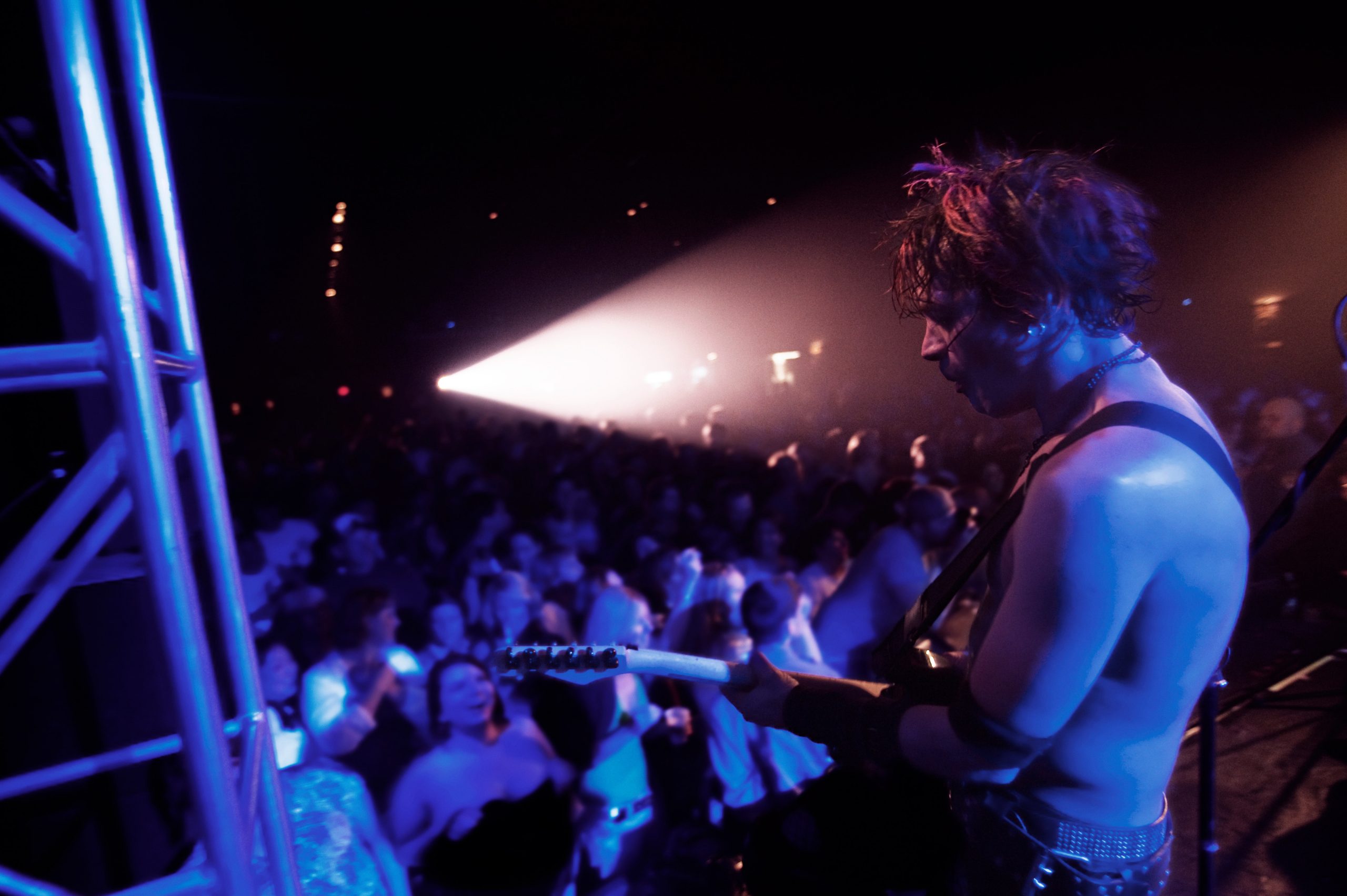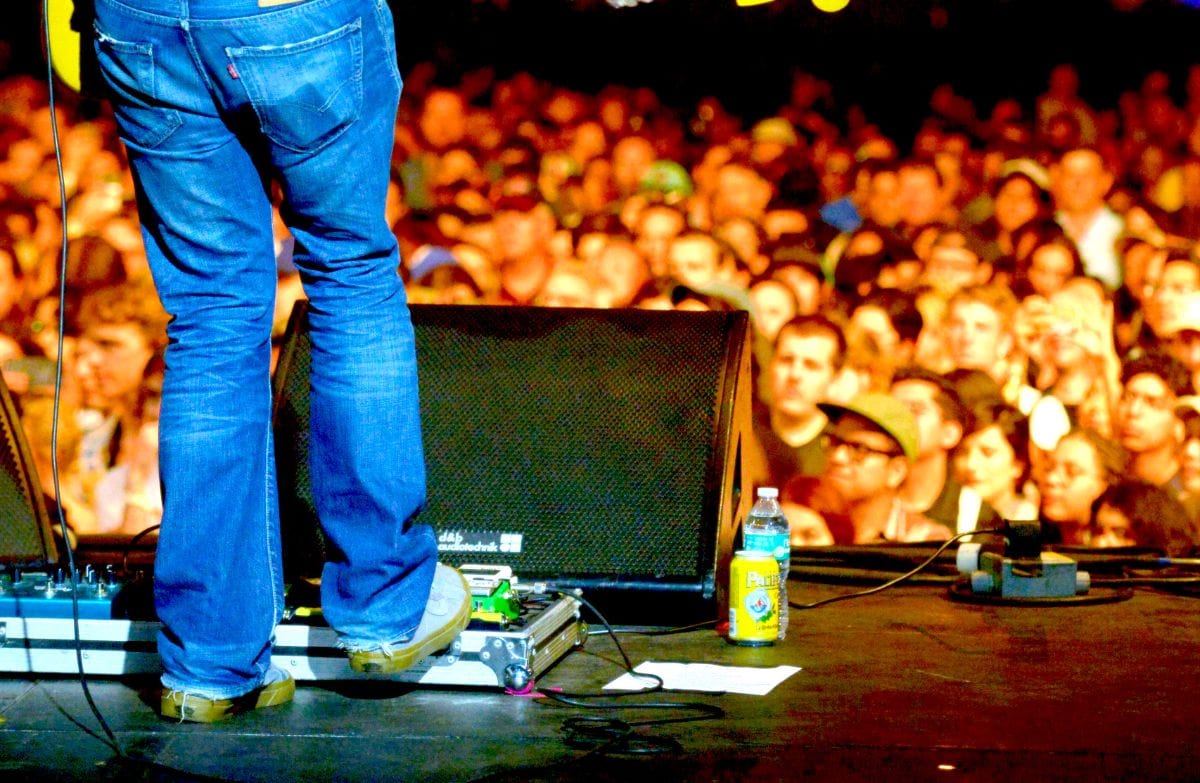
The Music Venue Trust (MVT), a charity which aims to preserve the UK’s live music sector, is currently estimating that grassroots venues have been closing at a rate of one per week this year, as it moves ahead with the £2.3 million worth of crowdfunding it sourced for its ‘Own Our Venues’ campaign at the end of last month.
The initiative, which has been publicly supported by Ed Sheeran, will seek to use the money it raised from some 1,261 investors to purchase the freehold of available grassroots venues and rent them back to operators on an improved deal.
First launched in June last year, the scheme has been billed by MVT as a means to “permanently secure a future for these venues by changing the ownership model”, as it seeks to support a sector that continues to face long-term decline amid growing challenges.

In response to the Spring budget last month, MVT said the government had missed an opportunity to support grassroots venues and thereby boost jobs and the economy.
The charity has warned, therefore, that “2023 will be the worst year for closures” of grassroots venues since it was founded in 2014.
Sophie Asquith, MVT coordinator for England, cites a combination of rising rents and energy costs, as well as a lack of cultural parity with other areas of the arts, as among the chief difficulties facing these venues.
“It’s a combination of challenges which individually have the power to make a venue really question their ability to survive,” Asquith told whynow.
“For some, [closure] is in six months when energy bills become unsustainable, for others it’s 18 months when they’re looking at their next tenancy renewal – you’re only ever really one rent review away from realising your business is no longer sustainable.
“The current climate of everything being pinched from every possible side is making the provision of live experience incredibly difficult at the moment.”
Running on a shoestring
Current operating costs have only worsened since MVT’s latest annual report was released in late January, which found that among its 960 members, the average grassroots venue was operating on a profit margin of just 0.2%.

Heidi Wort, the bookings manager at Bristol’s Exchange venue, which has operated since 2012 and held gigs for the likes of The 1975, Idles and Sleaford Mods, says that whilst bookings are picking up post-pandemic, “there’s a feeling of mild, impending doom.”
“It feels like everything is so uncertain,” Wort told whynow. “There are many variables looking pretty bleak that it feels very hard to look into the future.
“With the most recent budget, we were really hoping to see some VAT relief and yet, time and time again, particularly for music venues, we keep getting left off any relief or schemes.”
Among the tax reliefs announced in the Spring budget, the government’s Research and Development support only applies to projects in science and technology, despite arguments that grassroots venues provide this for the UK’s financially significant live music sector.
“By putting on artists at the very start stage of their career, that is research and development activity,” said Asquith.
“An artist like Ed Sheeran or Adele doesn’t just walk out into Wembley Arena and pull off a show like that; they’ve built that over years, and it’s grassroots music venues that are taking the risk of making a loss on people at that level.”
It happens in football, so why not in music?
Wort agrees, adding that if things continue as they are, in the long-run “that talent pipeline is going to dry up.”

“An artist like Ed Sheeran or Adele doesn’t just walk out into Wembley Arena and pull off a show like that.” Photo: Gareth Cattermole
“Among grassroots music [venues], it feels like the big companies, corporations and investors are reaping the benefits of the talent pipeline that’s created by grassroots music, but nobody’s feeding back into that pipeline,” she added.
“When it comes to football, the FA have a set percentage they pump back into grassroots football as a standard, which has really helped rejuvenate grassroots football over the last decade.
“We’re desperately in need of something similar because, like football in this country, music is a massive part of the cultural landscape; to see the lack of care and investment – not only governmentally but also the people that skim everything off the top – feels hard to swallow.
“I don’t think people really understand what the knock-on effects will be until they don’t have a gig to go to on Friday night in their city – and by then it’s too late.”
Build it and they will come… or will they?
But not everyone sees it as the responsibility of government to resolve the ongoing problems facing grassroots venues.
Dr. Chris Anderton, an Associate Professor in Cultural Economy at Solent University, whose areas of research include the live music and festivals industries, sees more long-term factors outside of government control as contributing to the worsening climate for venues.
“I’m really impressed by what MVT have done,” he told whynow. “They’ve done a lot of policy-aimed research and actions, but the focus is always on what I would call the production side: the issues that face the venues in terms of their finances.

“Calling to keep rates lower, keep licensing fees and VAT down – as it was during COVID – is great, but that doesn’t solve what I would say is the main problem: not enough people are going out.
“Things have changed and trying to keep things the same isn’t the solution, which is why it’s important for venues to really think about what audiences actually want, and how to deliver that effectively, because audiences have changed.
“Audiences are used to having everything at their fingertips on their phone now; of having a subscription and access to millions of tracks all at once.
“You could solve all the financial issues for the side of the venue, but that doesn’t make more people come, and so there really needs to be some sort of understanding or drive towards increasing audiences to come out to gigs.”
Culture is priceless… but data’s what you need
MVT reported that in 2022, when COVID restrictions in England were removed in late February, the average venue capacity at live music events was utilised 11% less than in 2019, prior to the pandemic.
There was also a decrease in events at these venues across the sector, down from an average of 4.2 events per week to 3.5.
Anderton added: “The alternative – and one MVT are pushing, but maybe it’s difficult with our current government, shall we say – is the idea that venues are culturally important, which is something you see picked up on in Europe.

“Some French venues are supported financially by the government, for example, which you don’t have in the UK; the assumption here is that if you’re a business, you should be able to make profit – and if you can’t make profit, you close.
“But that argument is really hard to make because governments tend to want to see figures, they’re interested in seeing a certain financial contribution to the local economy, and it’s hard to quantify that.
“The problem has always been – for the arts in general, not just music – if you want to justify financial support, you have to produce some quantitative statistics as to why you should be supported.”
MVT will be hoping the next phase of its ‘Own Our Venues’ campaign will yield some results as to what can be achieved through its Community Benefit Society structure.
Music Venue Properties Board is set to write to investors before the start of next week, 17 April, with its plan for the purchase of venues, and aims to complete the purchase of its first venues before the summer.




